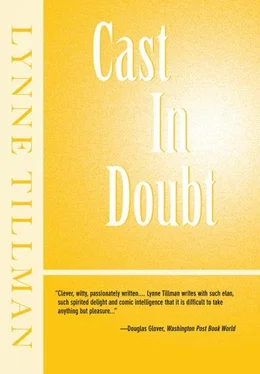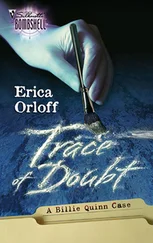Rather dramatic, I think now, more in keeping with Zelda Fitzgerald than myself, but perhaps I chose, consciously or unconsciously, to be Zelda when I wrote that, and from time to time it — the desire to be a flapper — pops up, dimply, giggly, and bee-stung, and finds its way onto the page. About choosing, Gwen quipped some years later, on my visit to New York: History chooses us like a virus. We’re all chosen people. She laughed when she said it; she was speaking about being caught in time as well as being taken hostage. It was at the end of 1980, and President Carter was wrestling impotently with the hostage crisis. It was dragging on. He was a lame duck, truly. Agonizing in public, Carter became in my eyes a familiar and sympathetic creature; his pathos won my sympathy, but it was the thing the public despised him for, his weakness. November 4, 1979, Gwen pointed out, when the American hostages were captured in Iran, was the same date that the Soviets entered Budapest twenty-three years earlier. Gwen always looked for occurrences like this. She called them the puns of history, and herself, the pundit queen. She once named herself — I think I remember her doing this in Boston — yes, she dubbed herself the pundit Negro. I quoted to her from Horace, my namesake — which is a joke between Gwen and me— Mutato nomine de te fabula narratur . “With the change of names, the story is told about you.” Sometimes Gwen went on and on changing names, as she was never satisfied, though on that occasion she sashayed, verbally, that is, around hysterical puns and history’s pawns. Even history’s prawns, but that was when, in New York, we were in a Chinese restaurant. We were, she noted then, the shrimp boats of history. I was nearly seventy.
At the restaurant by the harbor, I report in as much detail as I can what I had seen at Helen’s — the chaos, the writing on the wall, as it were, the cryptic notes to me, and, without a moment’s hesitation, Gwen advanced the theory that (a) Helen had not left any of this for me, or on my behalf, and (b) that I must not go to find her, because she did not want to be found. We engaged in a lengthy and confusing, to me, discussion of the Oedipus complex as it applied to Helen and her psychiatrist father. Gwen comically played both shrink and even sphinx, and asserted, with great moral seriousness, that if Helen knew or suspected that her father had loved her older sister better and more than her, her sister doubled as her mother — who was a shadowy figure in this scenario anyway, as no one ever mentioned her, and so perhaps she too was dead? — thus Helen might have murdered her sister, accidentally, or, more likely, merely desired her death and suffered from guilt. Of course this is — accidental murder, not mere desire — what I had originally speculated and dismissed as outlandish, not that it was accidental but that Helen had had a hand in it, that it wasn’t a simple suicide, if suicides ever are.
But why, I ask Gwen, would John lie to me or concoct the manner of Helen’s sister’s death? At this Gwen states, waspishly, John knows nothing. Really? I respond, implicitly begging for further information. Gwen smiled strangely but knowingly. Our food arrived and she didn’t immediately divulge her news.
But I knew it: Gwen had gotten the story, at least pieces of it. In addition she had gotten caught up messily with John. Alicia would be a witness to, if not a participant in, the mess. I could tell, intuit that. In the old days John would have been mincemeat to her, and Alicia, whom she doesn’t respect, a small obstacle if anything at all. In the old days Gwen would have sliced through John like a hot knife through butter, as Mother was wont to say. And I began to suspect that things were amiss, that things had gone awry with Gwen, that she was anxious, perhaps even desperate about something and even in some type of big trouble. It was possible that she was running away from New York, that she was not merely on vacation, needing a respite, having taken up my invitation, but had had to leave the city, forced out by something much bigger and more calamitous than bad vibes, as John would put it. She might have become entangled in a net of intrigue with dangerous characters such as the dealers and druggies she occasionally hangs out with for local color, as she likes to say. Looked on this way, Gwen was caught in a vise or had fallen into a trap. That it was of her own making, I had no doubt, though she herself might have insisted, as I’ve said, upon being a dupe of history, its plaything — I believe she’s called herself a Barbie Doll of fate.
Inwardly I castigated myself for having neglected Gwen over the past couple of years. I had not been much of a correspondent; I had received better than I had given. In my mind’s eye, I conjured what had befallen her here. While I had been lying groggily in my bed, losing time, Gwen and John had entrapped each other, had fallen into each other’s arms, but not into love. Because, I told myself, Gwen was out of sorts, not herself, and because John was a passive lad, so easily led, they had succumbed to each other. It was easy for them to wind up in each other’s arms, though they were uneasy lovers; they were both at loose ends. In any case, Gwen was wound up, about something. So they had coupled. Alicia must enter into this somehow, but I didn’t expect ménage à trois to be the right term for the involvement. Three Americans could never become a ménage à trois, to me. Frankly I can’t imagine the three of them in bed together. No doubt the failure is mine; I lack a certain type of imagination. I am a bit of a prude. Perhaps they employed a bundling board?
Gwen interrupts my mental meanderings, my wandering mind.
He’s Billy Budd, Lulu, really, Billy Budd. You see, he’s good and means well but he is deeply stupid. Naiveté oozes out of him. He’s like butterscotch syrup. He’s almost a drugstore sundae. Bittersweet naiveté—he drools it. He’s sweet but thick — and of course, you know, drop-dead gorgeous. When we left you at your door — you were out of it, Lulu — I’d already slapped him. You probably don’t remember, you never remember the vicious moments, Lulu. He went limp, like a kitten, and I saw the scene immediately. You know, one of those masochistic Catholic boys who wants his mother, anyone, to treat him like dirt, to punish him, to tell him to clean up his room — that must be why he followed Helen here. I’ll take bets she whipped him and chained him to his bed. And he loved it.
At this I went pooh-pooh, involuntarily, a reflex, and then lifted my eyebrows, the way she usually does. Gwen just snorted, the way she does. In any case, according to Gwen, John’s not sure who Helen is, or what her history is; she’s told him things, but he doesn’t know what to believe. John met up with her again in Athens by chance; they’d had a scene in New York, but nothing heavy. Anyway, he thinks she’s incapable of saying anything straight. So he’s not sure what’s what. Helen first told him her sister died in a bathtub in a college dorm, but when Gwen questioned him, John admitted Helen said something else later, about the sister nearly dying. It may have been a nervous breakdown but Helen is very secretive, especially about it, because she has a shrink for a father, Gwen suggests. The sister may have nearly died at home, of an overdose of pills the father stored all around the house, like candy. Gwen calls it an occupational hazard. John and Helen traveled to Crete together from Athens, but she never wanted him as a boyfriend. He did try to kill himself, that’s true, but it wasn’t about Helen. John was adamant that he didn’t really care about her; it was because his mother wrote him a letter saying that she’d finally seduced the parish priest back home, and his father knew and was going to have her committed. Isn’t that too much? Gwen exclaims. He’s impotent with Alicia, Lulu, which makes sense.
Читать дальше












